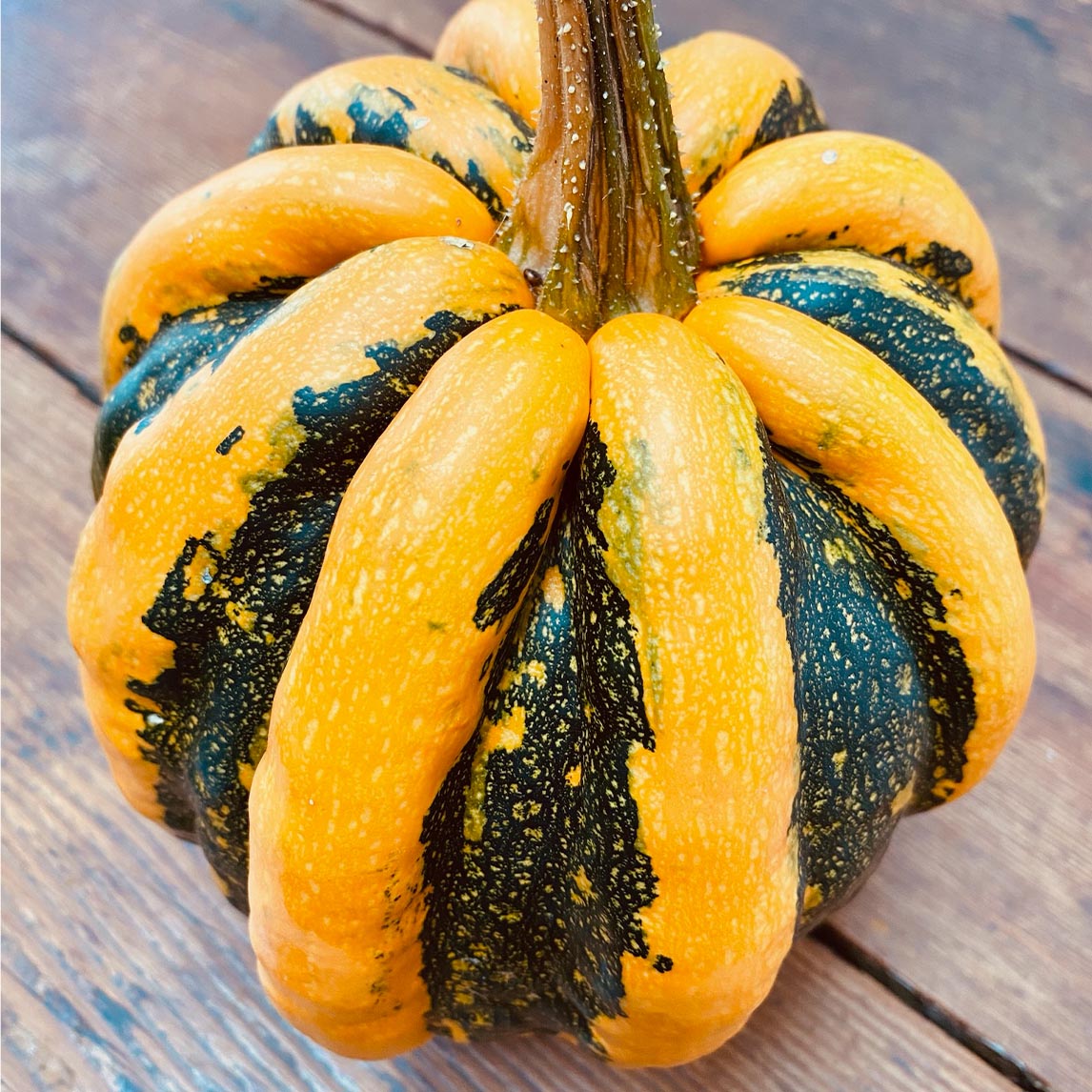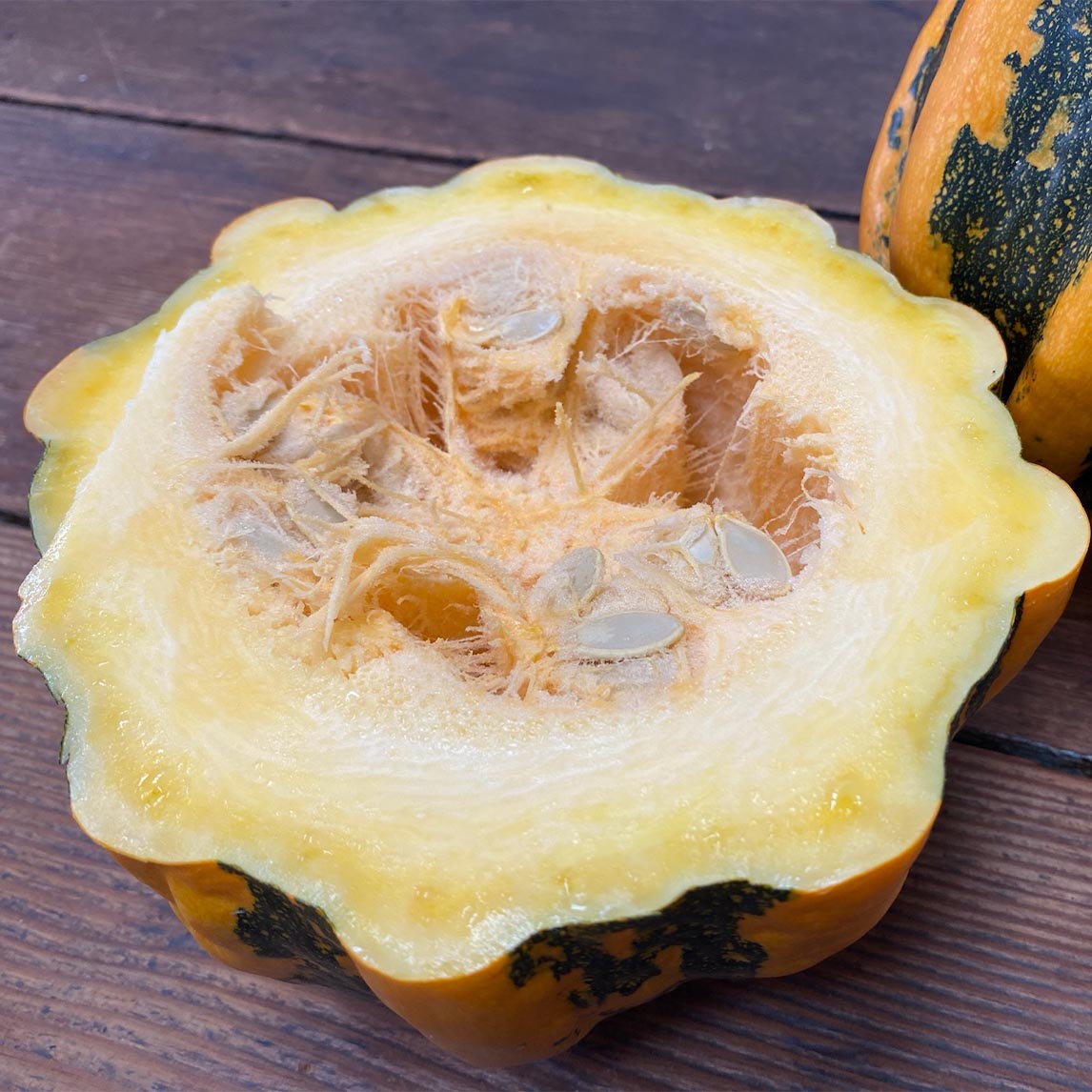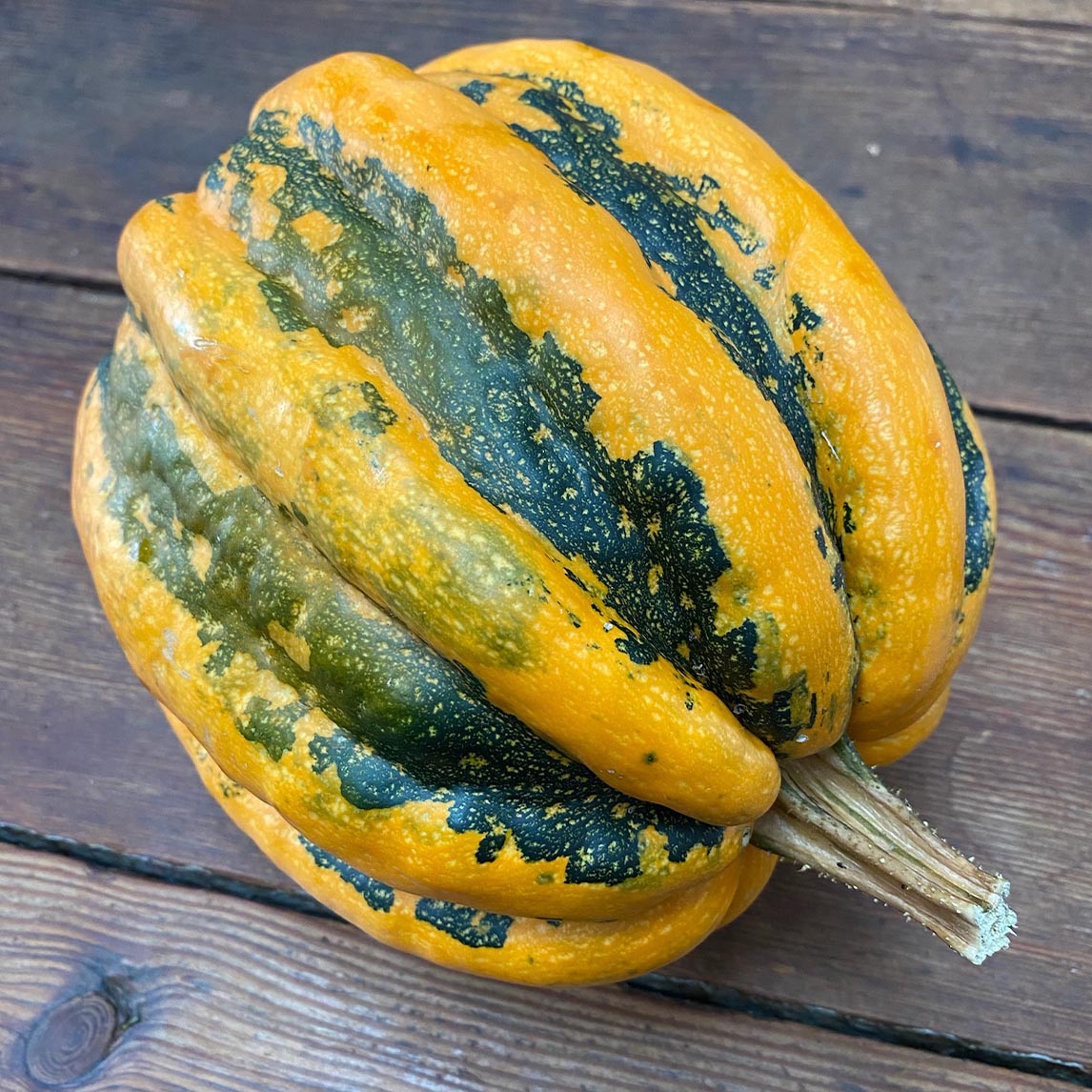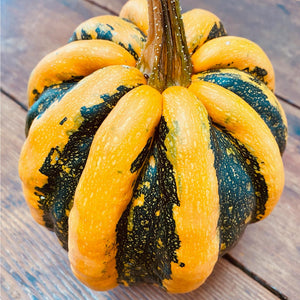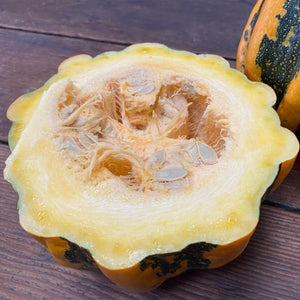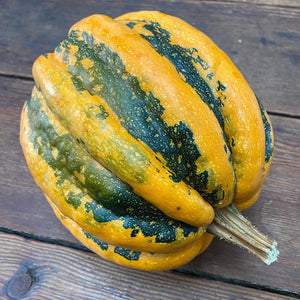Kumi Kumi
Easy to grow and incredibly productive, plant as you would pumpkins, in a soil enriched with compost and decomposed manure. If training to a trellis, allow vines to grow 1m before training upward. This helps to maximise space and allow for easy harvest. Insect pollinated, plants produce both male and female flowers, with bees the major pollinators in Australia. Avoid placing under insect netting which may cause reduced pollination. Seed germinates readily from 18°C–35°C in as little as 7-10 days. Sow in punnets and transplant after all likelihood of frost has passed. Water regularly, but avoid overhead watering which can encourage mould and mildew.

